You may have seen it on the back of supplement packets – 100% and beyond of the recommended daily allowance. This is where you might have thought to yourself, ‘why is that percentage so high?‘
This is because of the current supplement recommendations, which have been calculated for sedentary individuals – not taking into account athletes, who need more than the average recommendation.
In this article, I’ll quickly discuss how using more vitamins, minerals, and micronutrients can be more beneficial for health and recovery.
Table of Contents
Why Athletes Need Higher Doses
 The human body functions on a fine balance of vitamins and minerals – a.k.a essential micronutrients. All of which help to break down foods to be created into energy, whilst providing muscular and neuro energy support. This includes energy metabolism, hormonal balancing, and healing.
The human body functions on a fine balance of vitamins and minerals – a.k.a essential micronutrients. All of which help to break down foods to be created into energy, whilst providing muscular and neuro energy support. This includes energy metabolism, hormonal balancing, and healing.When energy metabolism is increased, so does the need for micronutrients. Micronutrients such as water-soluble vitamins act as coenzymes, helping your body convert food sources into usable energy.
The reason why we call them ‘essential’ is because you need to obtain them from your diet in order to maintain health.
Furthermore, they are necessary for helping your muscles and mind to work efficiently – along with healing damaged cells via muscle protein synthesis.
Benefits of maintaining adequate vitamin and mineral levels:
- Increased growth and development
- Better muscle contractions
- Stable hydration balance
- Better nerve functioning
- Improved energy metabolism
- Faster tissue repair
- Better bone metabolism
- Increased transportation of oxygen
- Stronger immune system
A lack of essential vitamins and minerals, and you’ll simply run out of steam. You’ll hit the wall – limiting your chances of feeling and performing at your best.
How Vitamins and Minerals Are Lost?
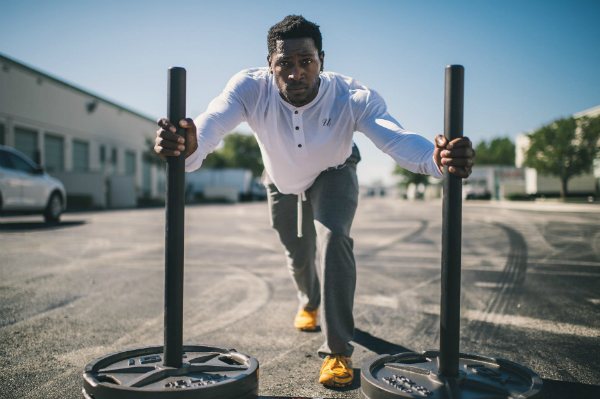
- Increased physical activity – When increased activity occurs, so will an increase in your metabolism. A rise in metabolism will signal for the requirement of additional vitamins and minerals beyond what a sedentary person needs.
- Hot weather – Hot weather can accelerate perspiration, leading to greater fluid loss. The most noticeable minerals lost via perspiration are sodium, magnesium, and potassium – the three main electrolytes needed for efficient neuromuscular daily functions.
- Uncalculated hydration practices – You’ll have seen it in the news. An endurance athlete who passes out, falling to the ground after completing a race. Sometimes under fatal conditions. This is down to overhydration – which flushes out vital electrolytes in the blood. If this happens, it causes Hyponatremia – a condition which can lead to brain damage and even death.
Water-Soluble vs Fat-Soluble Vitamins

Water-soluble vitamins and minerals can be lost through sweat, urination and general perspiration as they pass through digestion and into the blood – where they’re quickly used up during exercise.
A fat-soluble vitamin, on the other hand, binds to fats in the foods you eat, and within the fat on your body. This means they aren’t lost so easily. Meaning, they take longer to break down.
Some examples of water-soluble vitamins and minerals are b-vitamins, vitamin C, magnesium, and sodium. As for fat soluble-vitamins – the most common are; vitamin D, A, K and E.
The Most Common Vitamins and Minerals Lost
One of the minerals that’s lost in vast amounts through increased physical activity is magnesium. It’s magnesium’s role to metabolise foods into energy and relax the central nervous system. It also helps your brain to function at its best, with some other 300 biological mechanisms that work on a continuous basis.
 According to the U.S. National Library of Medicine; “Despite Mg’s critical role in energy metabolism, maintaining Mg intake at an adequate level has been frequently overlooked among the general population and athletes”. (I)
According to the U.S. National Library of Medicine; “Despite Mg’s critical role in energy metabolism, maintaining Mg intake at an adequate level has been frequently overlooked among the general population and athletes”. (I)Electrolytes, in general, are vital for health and performance. They can even prevent death caused by Hyponatremia. This occurs when overhydrating – flushing out minerals needed for brain and heart health. Electrolytes are; sodium, magnesium, potassium and calcium.
Furthermore, b vitamins and vitamin C are also easily lost when your metabolism increases. And there’s also iron, which increases blood, oxygen, and nutrient supply around your working muscles, heart, lungs, and brain. A lack of iron can seriously diminish your exercise performance. (II)
For example; Paula Findlay, an Olympic Triathlete came in last in the 2012 London Olympics. The main reason for this was due to having low iron levels. Something that was noticed after the event during a blood test.
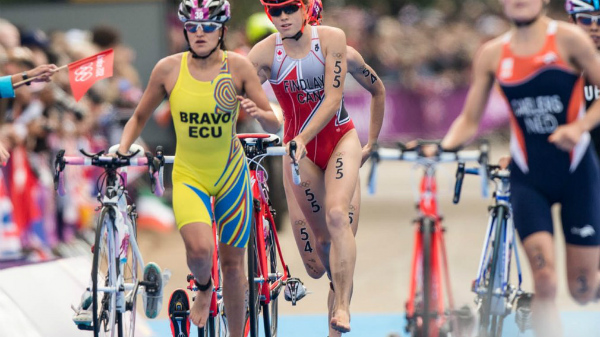
As for fat-soluble vitamins, such as vitamin D, which is actually a hormone. It increases bone health, energy support, and immunity. However, it’s much harder to lose as it binds to fat. (III)
Symptoms of Vitamin and Mineral Loss or Deficiency
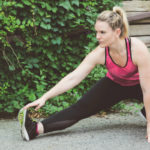 If you’ve ever felt restless legs at night or twitching muscles, then you may be low in electrolytes (magnesium, potassium, and sodium).
If you’ve ever felt restless legs at night or twitching muscles, then you may be low in electrolytes (magnesium, potassium, and sodium).
Furthermore, if you’re struggling to complete a workout or your performance just isn’t up to scratch, then your iron (ferritin) levels could be too low. Read; Optimal Ferritin levels For Athletes.
Then there’s brain fog and low mood, which could be a sign that your b vitamin consumption is below optimal. B vitamins are vital for energy metabolism, not only for movement and exercise but also for your brain.
Which Vitamins and Minerals To Use In Higher Doses?
I’m sure you’ll see a pattern emerging by now. The supplements to pay attention to are b-vitamins, vitamin C, and electrolytes and iron. You can find healthy amounts of vitamins in polyphenols, which is exactly why I’ve added them to this list.
On their own, polyphenols contain healthy amounts of vitamins and healing properties that speed up muscle repair whilst fight off infections. Below you’ll find the most common supplements/vitamins/minerals to increase to when exercising on a regular basis:
Electrolytes
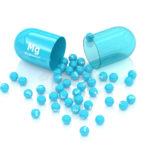 Magnesium, sodium, and potassium are the minerals which you need to pay the closest attention to. Having too few of these essential minerals can cause muscle cramps, dizziness, confusion, and even hyponatremia if not monitored carefully.
Magnesium, sodium, and potassium are the minerals which you need to pay the closest attention to. Having too few of these essential minerals can cause muscle cramps, dizziness, confusion, and even hyponatremia if not monitored carefully.
Increasing electrolyte intake surrounding exercise is a smart way to make sure your body can perform and recover efficiently.
You can easily do this by taking a sports supplement pre, intra, or post-workout. Another way to increase electrolyte intake is to make a smoothie using organic salt added to your water, along with a banana for potassium, and blended pumpkin seeds for added magnesium.
Water-Soluble Vitamins and Minerals
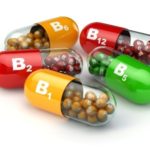
Water-soluble vitamins and minerals (vitamin C and b-vitamins, and iron) are required in larger amounts when an accelerated metabolism occurs.
This is down to the way that metabolic processes such as energy metabolism and protein synthesis are driven by biochemical regulators known as metabolic enzymes.
It’s these enzymes that require coenzymes and cofactors to change from one substrate to another, providing energy and healing benefits. B-vitamins, in particular, are linked to many cofactors in metabolic enzymes.
Furthermore, iron is responsible for increasing blood and oxygen supply around your body. And then there’s vitamin C, which increases cell repair by improving your immune system.
Polyphenols
 In the form of micronutrients, which are found in many food groups such as cherries, beetroot, tea and coffee – polyphenols increase the recovery process.
In the form of micronutrients, which are found in many food groups such as cherries, beetroot, tea and coffee – polyphenols increase the recovery process.
In some cases, eating cherries (high in polyphenols) has been shown to reduce delayed onset muscle soreness at a quicker rate.
Furthermore, polyphenols help to fight off free radicals, oxidative stress, and infections that might occur when training intensity or frequency increases. (IV)
Vitamin and Mineral Doses For Athletes?
 Below is a list of the Recommended Daily Allowance for B Vitamins, Electrolytes, Polyphenols/Flavonoids. However, as discussed, increased dose supplementation of essential water-soluble vitamins and minerals may only be required due to the following: Increased activity levels, sweat-rate, age, weight, and gender, geographical location (temperature and humidity).
Below is a list of the Recommended Daily Allowance for B Vitamins, Electrolytes, Polyphenols/Flavonoids. However, as discussed, increased dose supplementation of essential water-soluble vitamins and minerals may only be required due to the following: Increased activity levels, sweat-rate, age, weight, and gender, geographical location (temperature and humidity).Water-Soluble B Vitamins
For women:
- B-1: 1.1 milligrams (mg)
- B-2: 1.1 mg
- B-3: 14 mg
- B-5: 5 mg (RDA not established)
- B-6: 1.3 mg
- biotin: 30 micrograms (mcg) (RDA not established)
- folic acid: 400 mcg
- B-12: 2.4 mcg
For men:
- B-1: 1.2 mg
- B-2: 1.3 mg
- B-3: 16 mg
- B-5: 5 mg (RDA not established)
- B-6: 1.3 mg
- biotin: 30 mcg (RDA not established)
- folic acid: 400 mcg
- B-12: 2.4 mcg
Electrolytes – A healthy person weighing 70 kg should look to consume the following – daily:
- Sodium 500 mg
- Magnesium 750 mg
- Potassium 2,000 mg
According to the U.S. National Library of Medicine: “Based on dietary surveys and recent human experiments, a magnesium intake less than 260 mg/day for male and 220 mg/day for female athletes may result in a magnesium-deficient status”. (V)
Thus demonstrating that higher doses of magnesium, in particular, are required when taking part in an active lifestyle.
Polyphenols/flavonoids
- It has been studied that elderly Japanese men consumed some of the largest amounts of polyphenols recorded – between 1000-2000mg per day. (VI)This highlights the positive effects of consuming a large number of polyphenols. This is because the Japanese are some of the healthiest people on the planet – compared to westerners.
Side Effects From Higher Supplement Doses?
Overshooting on water-soluble vitamin and mineral consumption should not cause side effects. This is because, water-soluble essential elements, when consumed in higher amounts, pass-through the body via urination without causing harm.
 However, taking excessive amounts of vitamins may cause toxicity and side effects such as nausea and stomach upset. Therefore, taking a sensible and balanced approach to supplementation is something I always recommend.
However, taking excessive amounts of vitamins may cause toxicity and side effects such as nausea and stomach upset. Therefore, taking a sensible and balanced approach to supplementation is something I always recommend.
Ideally, you should have a blood test done with your doctor to determine if you are deficient in any vitamin or mineral. However, the problem here is that your blood vitamin and mineral levels may fluctuate daily, providing inaccurate readings.
Therefore, you should consume high amounts of foods containing vitamins and minerals surrounding higher training periods – think nutrient-dense foods. On top of this, using a multi-vitamin supplement in combination with a balanced diet should counter any imbalances that may occur.
Sport Nutrition Expert Recommendation?
 In conclusion, for a way to increase recovery, improve energy levels, increase mental alertness and in some cases, prevent fatal conditions such as hyponatremia – then you may want to look into using higher amounts of essential water-soluble vitamins and minerals.
In conclusion, for a way to increase recovery, improve energy levels, increase mental alertness and in some cases, prevent fatal conditions such as hyponatremia – then you may want to look into using higher amounts of essential water-soluble vitamins and minerals.
Therefore, using higher supplement doses, more specifically, essential vitamins and minerals is a good way to make sure your body gets the support it needs during training and recovery.
Supplementing with additional magnesium, b-vitamins, and sodium is an integral part of my own recovery routine. Along with eating a wide variety of colourful fruits and vegetables.
When I’m not adding Himalayan salt to my food, or eating bananas with pumpkin seeds, I use supplements designed for athletes surrounding my workouts that contain all of the above.
And last but not least, the mineral iron is also integral to improved sports performance and recovery. And the same can also be said for vitamin D. However, as it’s fat-soluble, it’s not needed in high amounts compared to minerals and water-soluble vitamins.
Resources:
(I) Purcell, Laura K, and Canadian Paediatric Society, Paediatric Sports and Exercise Medicine Section. “Sport Nutrition for Young Athletes.” Paediatrics & Child Health, Pulsus Group Inc, Apr. 2013. (source)
(II) Organization, Chiropractic Resource. Essential Nutrients for Endurance Athletes: 10 for the Road. (source)
(III) Ogan, Dana, and Kelly Pritchett. “Vitamin D and the Athlete: Risks, Recommendations, and Benefits.” Nutrients, MDPI, 28 May 2013. (source)
(IV) “Polyphenol.” Polyphenol – an Overview | ScienceDirect Topics. (source)
(V) Nielsen, F H, and H C Lukaski. “Update on the Relationship between Magnesium and Exercise.” Magnesium Research, U.S. National Library of Medicine, Sept. 2006. (source)
(VI) Taguchi, Chie, et al. “Estimated Dietary Polyphenol Intake and Major Food and Beverage Sources among Elderly Japanese.” Nutrients, MDPI, 9 Dec. 2015. (source)

Leave a Reply